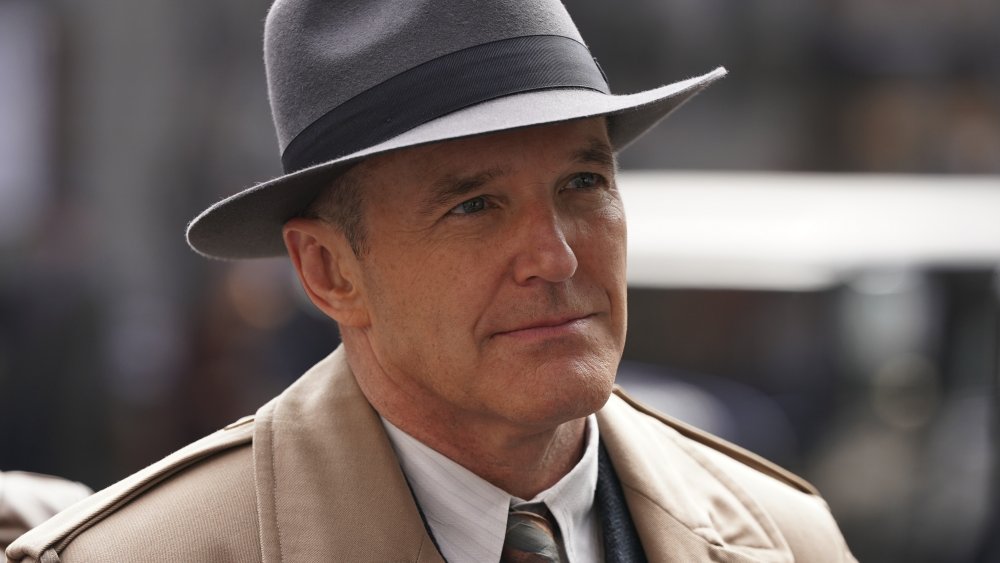The Time Travel In Agents Of S.H.I.E.L.D. Season 7 Explained
In the final season of Agents of S.H.I.E.L.D., the team is doing their own kind of time heist, but they don't have the benefit of Pym particles like the Avengers did in Avengers: Endgame. The way time travel works on Agents of S.H.I.E.L.D. is a little different — though, at some point, Bruce Banner (Mark Ruffalo) should probably debrief and compare notes with Leo Fitz (Iain De Caestecker) and Jemma Simmons (Elizabeth Henstridge).
The time travel itself is necessary to stop an enemy from outer space. The Chronicoms, who want to establish a new home on Earth and, believing that the desk organization behind its mightiest heroes is their only obstacle, are trying to wipe S.H.I.E.L.D. from existence by assassinating the ancestor of Hydra leader Gideon Malick. So, ironically, in order to save S.H.I.E.L.D., our team has to save Hydra, since the organizations were so closely tied together at the beginning.
In previous seasons, the team traveled in time using portals created by monoliths. Remember, however, that, in season 6, Fitz and Simmons were imprisoned together and forced to solve the logic of time travel. During the season 6 finale, Fitz and Simmons took a sabbatical in time to put all of that into practice and give the Zephyr a major upgrade. Here's how they're time traveling now for the final mission in season 7.
The Zephyr is now a time machine, sort of
Simmons explains in the season 7 premiere that, while Fitz's ship is technically traveling through time thanks to a stolen alien jump drive, they can't just go anywhere. "There are critical launch windows leading to specific points in time and space," she says, "Fitz called them 'tides.' The Chronicom took one and we followed them here." Fitz is the one setting their destination, but can't join Simmons, lest the Chronicoms scan their brains and anticipate their moves, again — because, of course, FitzSimmons has to be separated during the final mission. They're cursed.
It helps that they're using alien technology to accomplish all this. if something doesn't make sense, blame it on the aliens. It's also during that time that FitzSimmons used Chronicom technology to create an advanced Life Model Decoy copy of Phil Coulson (Clark Gregg). He was brought back, so to speak, to consult on S.H.I.E.L.D. history, so the team can figure out the "threads" of time they are trying to unravel.
S.H.I.E.L.D. is not trying to change the past, for now
Aren't they changing history just by being there, and endangering the future of S.H.I.E.L.D., anyway? Deke (Jeff Ward) actually presents a convincing theory about how safe it is to walk around in the past as an alternative to "The Butterfly Effect." "The Butterfly Effect is just one aspect of the multiverse branch theory," he explains. "Personally, I subscribe to to the Time-Stream idea." He then uses sticks in a stream of water as a metaphor. Throw just a few sticks, or factors like people and their actions, into the stream, and the water still ends up flowing to the same destination. The only way to alter time is to create a metaphorical dam. "As long as we can avoid that," says Deke, "we should be able to splash around a little bit."
This is, for the record, on par with how the consequences of time travel are explained in Avengers: Endgame. Hulk insists that, if you travel to the past, then the past you're in becomes your present, and the present you left becomes your past, and therefore can't be changed. That means you can't erase your own existence like in Back To The Future, per Bruce Banner's understanding. Later, Bruce meets the Ancient One, who explains branch realities: You may not change your own past by time traveling, but you are branching off an alternate timeline for everyone else.
On Agents of S.H.I.E.L.D., Deke basically just thinks it takes major actions to branch off these realities, not minor ones. Examples include Loki's theft of the tesseract or Thanos and Gamora's jump forward in time in Endgame. So, branch realities do exist in the Marvel Cinematic Universe but, if all goes according to plan, Agents of S.H.I.E.L.D. won't be creating another one.


